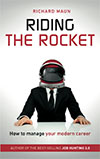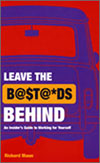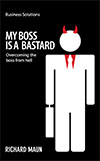better business blog
Tips and stories to add value to you and your organisation

Five Time Management Tips
I taught a lively group of post-grads the other week and the theme of the lecture was ‘time management’. This is of course nonsense, as we can no more ‘manage time’ than we can knit soap.
We can make use of time, we can fritter it away, or we can use it to drink sherry in. But we can’t manage it… what we have to do is manage ourselves.
At the end of the work I offered my top five tips to manage ourselves more productively and here they are again, in all their sparkly glory:
1) Notice when you work best and make sure you’re productive during those hours. For example, I work best towards the end of the day so I make sure I do all my ‘bitty’ admin tasks at the start of the day and big projects at the end, when I’m more settled and can think clearly.
2) Don’t fight your kid. If the excitable little child inside you wants to go and play then let him/her our for some fresh air. Often if we force ourselves to work when we want to play we just fritter the time anyway, or work more slowly. (This is called ‘being rebellious’ and we all do it).
3) Say ‘not at this time’ or ‘not yet’ if you’re asked to do something for someone else and you’re busy. That’s easier than a blank ‘no’, which people can find hard to say.
4) Less is more! Write a short to-do list which you can achieve in the next four hours. Stick to it and then pull something forward from tomorrow, if you have time at the end. That’s more satisfying that always pushing things back, like a snow plough.
5) Write it all down. Keeping things in your head just fills an already crowded space. Have a list of lists if you like. I favour Post-It notes and keep a pile of scribbly actions on my desk. I don’t mind that they’re messy. All I mind is that they’re there! Writing things down saves memory and means we can organise and shuffle and reorder the things we need to do. That’s much harder to achieve when they’re all in our head and as the old adage runs; if you can see it, you can sort it.
Life doesn’t have to be complicated and making effective use of time is built on having a methodical process for organising our day… and the self awareness to know when we’re productive and when we’re fooling ourselves.
What do you need to do differently this week, in order to make better use of your time?
Tags: time management
Time Management Tip: Stop!
Sometimes it’s hard to stop, but stopping is what’s needed.
I was in a TA supervision session recently and realised that I needed to stop some things that have been causing time management stress. By the way, supervision is a great way to learn new things and improve your performance. If you’re working as a coach, you’ll probably already be having some. If not; call me.
So what have I stopped? Here are three of the key ones:
1) I’ve stopped cutting my day into tiny chunks of time. I found that trying to work on all of my big projects at once was distracting. Instead, I now have my diary organised so that I have a case study writing day, a book writing day, a client and sales day and so on. I focus on one key theme per day and that makes me more productive.
2) I’ve stopped being an active member of a TA sub-committee. I’ve had to acknowledge that, for now at least, I need to focus my time on my work and cut out some of the time-consuming ‘nice to haves’. Putting myself first here was hard, as I like the people and the subject matter, but I have deadlines to meet and need to be practical.
3) I’ve stopped trying to do it all myself. It’s easy to become self reliant and assume that only I can do the work, whilst fretting that I don’t have the time to fit in everything. Does that sound familiar to you? I’ve started to actively involve Sara, my ILM Centre Manager, with more projects. She’s great, knows her stuff and brings energy and ideas to the party. We have the wonderfully useful LaunchPad profile for leadership and team development, which we’re now promoting, so it makes sense to share the load and increase the capacity for action.
If your diary is full and you’re fretting about things, if you’re anxious that work or life is spinning out of control, if you’re surrounded by half-finished projects and piles of paper, which seem to be taking over; then the message here is a clear and friendly one:
Stop.
Take a step back. Munch a biscuit. Talk to a friend, or get some supervision….
….And decide what you need to stop doing, in order to start making headway again.
Oh, and if you want to stop guessing about how to make progress with your team, or your personal development, then have a go at LaunchPad. Airbus, the NHS and countless Cranfield post-grads have all used it to stop floundering in the dark and start to make progress.
Have fun with your stopping!
Tags: stop, time management, tip
e-publishing
Click icon for details


recent posts
browse archive
books
Click cover to view details on Amazon
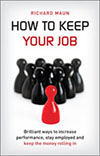
How to Keep Your Job
Brilliant ways to increase performance, stay employed and keep the money rolling in
Published 2011 Marshall Cavendish
208pp
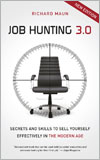
Job Hunting 3.0
Secrets and skills to sell yourself effectively in the Modern Age
Published 2010 Marshall Cavendish
260pp

 RSS
RSS

